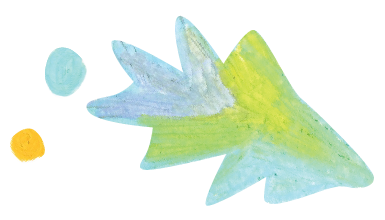Insulinomas in Ferrets
What is an insulinoma?
 An insulinoma is a cancerous tumor that involves the beta cells of the pancreas. Beta cells produce insulin. An insulinoma may be an insulin-producing adenoma (benign cancer) or an insulin-producing adenocarcinoma (malignant cancer). Insulinomas are very common in pet ferrets.
An insulinoma is a cancerous tumor that involves the beta cells of the pancreas. Beta cells produce insulin. An insulinoma may be an insulin-producing adenoma (benign cancer) or an insulin-producing adenocarcinoma (malignant cancer). Insulinomas are very common in pet ferrets.
Insulin regulates the level of glucose (sugar) in the bloodstream and controls the delivery of glucose to the tissues of the body. Glucose is an important energy source for the body.
Cancerous beta cells in the pancreas create insulin at an accelerated and uncontrolled rate, regardless of the body’s needs. The excess insulin reduces the amount of glucose in the blood to dangerous levels – a condition called hypoglycemia.
What are the clinical signs of insulinomas?
Normal blood glucose levels in a ferret are 65-112 mg/dl. Clinical signs of hypoglycemia (blood glucose below 65 mg/dl) may include pawing at the mouth, "stargazing", weakness (often seen in the hind end), gradual weight loss, tremors, collapse, abnormal behavior, depression, lethargy, and confusion.
In cases of critically low blood glucose, symptoms may progress to seizures and/or a hypoglycemic (low blood sugar) coma. The adrenal gland reacts to dramatic reductions in blood glucose by producing adrenaline. Increased levels of adrenaline cause a rapid heart rate, tremors, and irritability.
Some ferrets with tumors of the pancreas show no obvious clinical signs or may show only intermittent signs. A common early symptom is difficulty waking a ferret from sleep. Some ferrets display what is referred to as “speed bumping”, in which the ferret plays for a moment, then lays flat out for several minutes, then gets up again.
If a ferret has intermittent episodes of hypoglycemia, the disease may go undetected for a long time because the pet owner does not observe the signs. The severity of clinical signs depends on how low the blood glucose gets. In mild cases, signs often improve just after the ferret eats.
How are insulinomas diagnosed?
 A consultation with a veterinarian familiar with ferrets is necessary to diagnose insulinomas. During the consultation, the veterinarian will ask what signs you observed in your ferret and his behavior in his home environment. Your veterinarian will conduct a physical examination and collect blood samples for diagnostic testing. A blood chemistry profile will measure the blood glucose level and other metabolic parameters. Many veterinarians have an in-house blood analyzer to measure blood glucose levels.
A consultation with a veterinarian familiar with ferrets is necessary to diagnose insulinomas. During the consultation, the veterinarian will ask what signs you observed in your ferret and his behavior in his home environment. Your veterinarian will conduct a physical examination and collect blood samples for diagnostic testing. A blood chemistry profile will measure the blood glucose level and other metabolic parameters. Many veterinarians have an in-house blood analyzer to measure blood glucose levels.
The obvious test would seem to be a blood insulin measurement; however, ferrets with insulinomas often have normal insulin levels at the time of sampling due to the episodic nature of this condition. A more definitive test is a blood analysis of insulin and glucose levels. If there is a high level of insulin and a low glucose level, then the diagnosis of Insulinoma is definitively made. This test must be sent to a reference laboratory for analysis.
Insulinomas are tiny (usually 1-3 mm wide), so they are almost impossible to diagnose by abdominal palpation and, most of the time, cannot even be identified by ultrasound examination of the abdomen.
How are insulinomas treated?
Treatment of insulinomas may be medical or surgical, depending on the severity of the disease and the age of the ferret.
- Medical therapy involves daily administration of liquid oral prednisone (a corticosteroid) to help increase blood glucose levels, and diazoxide (Proglycem®) to slow the release of insulin from the pancreas. These medicines do not stop the progression of the tumors but will minimize clinical signs. Medical therapy will be life-long.
- Surgery involves removing any visible pancreatic tumor nodules. While it is easy to remove visible nodules, this disease often produces a microscopic spread of multiple tumor cells. Surgery is rarely curative, as the tumors have usually spread already. Even with surgery, medical therapy will be necessary. Some reports indicate that the combination of surgical and medical therapy allows for a slightly longer life expectancy.
Your veterinarian should check blood glucose levels every three to six months. In most cases, your veterinarian will need to increase the amount of the medication to help keep glucose levels and symptoms stable.
You must also manage your ferret’s diet. Ferrets tend to be grazers or nibblers when they eat, so it is best to provide four to six small meals per day to help level out blood glucose levels. Avoid daily treats like honey and syrups; although they provide sugar, they potentially challenge the cancer cells to make more insulin.
If your ferret collapses, has a seizure, or experiences a hypoglycemic coma, emergency treatment by an experienced veterinarian is critical for survival. Immediately rub honey or corn syrup onto the ferret’s gums. Be careful if the ferret is having a seizure, as there is a danger of being bitten. Do not delay. Rush your ferret to your veterinarian for further supportive care and diagnostics.
What is the prognosis?
Medical therapy and surgical removal of the cancerous nodules are the optimal treatment options. The largest reported series of cases to date have demonstrated a mean survival time after surgery of around 500 days (1.4 years), which is relatively long given that affected ferrets are usually middle-aged at the time of diagnosis. Many ferrets respond well to medical therapy and dietary management. Depending on the severity of the disease, ferrets who are managed medically can live for several months up to several years.
© Copyright 2025 LifeLearn Inc. Used and/or modified with permission under license. This content written by LifeLearn Animal Health (LifeLearn Inc.) is licensed to this practice for the personal use of our clients. Any copying, printing or further distribution is prohibited without the express written consent of LifeLearn. This content does not contain all available information for any referenced medications and has not been reviewed by the FDA Center for Veterinary Medicine, or Health Canada Veterinary Drugs Directorate. This content may help answer commonly asked questions, but is not a substitute for medical advice, or a proper consultation and/or clinical examination of your pet by a veterinarian. Please contact your veterinarian if you have any questions or concerns about your pet’s health. Last updated on May 8, 2025.

